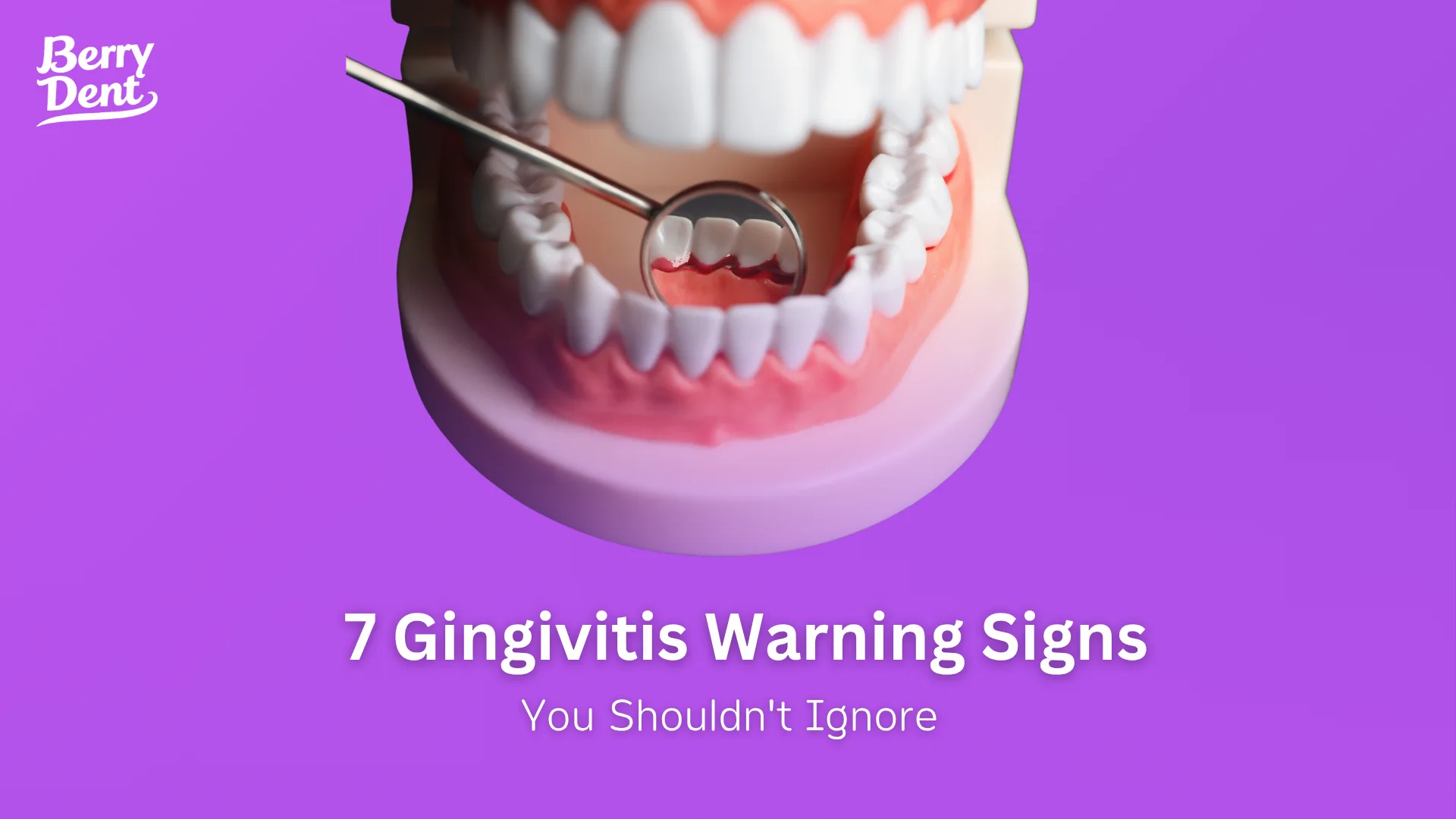Ever noticed blood on your toothbrush after brushing, or felt that your gums look more swollen and red than usual? Many might dismiss it as a minor issue that will resolve on its own. But did you know this could be the initial sign of “gingivitis,” a silent threat in your mouth that most people overlook because it’s often not severely painful in its early stages?
Ignoring minor gum inflammation today can lead to more severe and complex oral health problems in the future, such as periodontitis, which can even lead to tooth loss. Berry Dent invites you to check if you have any of these warning signs.
Checklist! 7 Warning Signs of Gingivitis
- Gums Bleed Easily When Brushing or Flossing
This is the most classic and common sign. Remember, healthy, strong gums don’t bleed easily just from brushing or flossing. If you see blood every time you clean your mouth, it’s a sign that your gums are inflamed and need special care.
- Swollen, Red, or Dark-Colored Gums
Normally, our gums are a light pink color and look firm and tight. When gingivitis occurs, the gums turn bright red or dark red, may look puffy, and feel softer than usual. Take a look in the mirror and compare the color of your gums to how they used to look.
- Persistent Bad Breath
Bad breath that doesn’t come from the food you ate but is a constant foul odor might be caused by bacteria accumulating along the gum line, which is the main cause of gingivitis. These bacteria release sulfur compounds, causing an unpleasant smell.
- Receding Gums, Making Teeth Look Longer
When gum inflammation persists for a long time, the gum tissue may start to recede from the teeth, making them look unusually long. This can also be the beginning of tooth sensitivity because the part of the tooth not protected by enamel is exposed.
- Soreness or Pain in the Gums
Although it may not be painful in the early stages, as the inflammation progresses, you might feel a sharp or dull ache in your gums, especially when chewing or when a toothbrush touches them.
- Pus Coming from the Gum Line
If you gently press on your gum line and a whitish, pus-like fluid comes out, this is a clear sign of an infection and indicates that the gingivitis is at a relatively severe stage. You should see a dentist immediately.
- Loose Teeth or a Change in Your Bite
This is the ultimate warning sign! When gingivitis is left untreated and turns into periodontitis, the inflammation spreads to destroy the bone that supports the teeth, causing them to become loose or feel like your bite has changed. This is a very dangerous condition.
How to Take Care of Yourself When You Have Signs of Gingivitis?
If you find you have any of these symptoms, don’t panic. In the early stages, you can care for and restore your gum health by changing your habits.
- Brush Correctly: Use a soft-bristled toothbrush and brush at least twice a day for 2 minutes each time, focusing gently on the area where the teeth and gums meet.
- Floss Daily: Brushing alone cannot remove all the plaque between teeth. Flossing is essential to remove the root cause of gingivitis.
- Choose the Right Toothpaste: Choosing the right toothpaste is another key factor in fighting gum problems.
Caring for gingivitis requires special attention. Choosing the right toothpaste is very important. We recommend Berry Dent hybrid herbal toothpaste, which perfectly blends the power of nature and science. With extracts from 5 types of berries rich in antioxidants, it helps keep gums healthy, along with other natural herbs that help reduce bacterial buildup. Most importantly, it contains 1500 ppm fluoride, the amount recommended by dentists for maximum effectiveness in preventing cavities, allowing you to care for both gum problems and tooth health in one tube.


